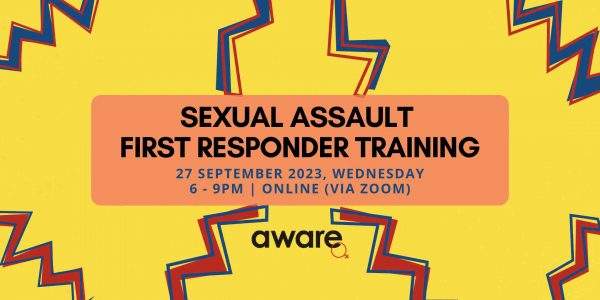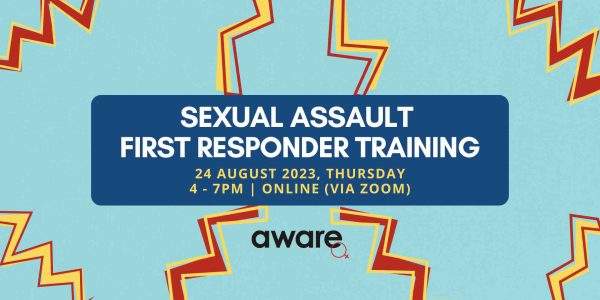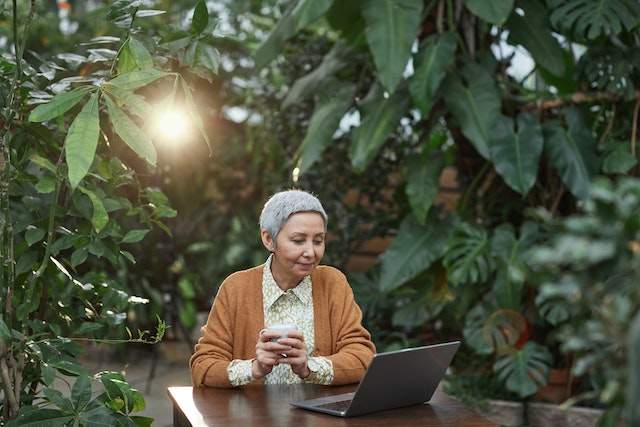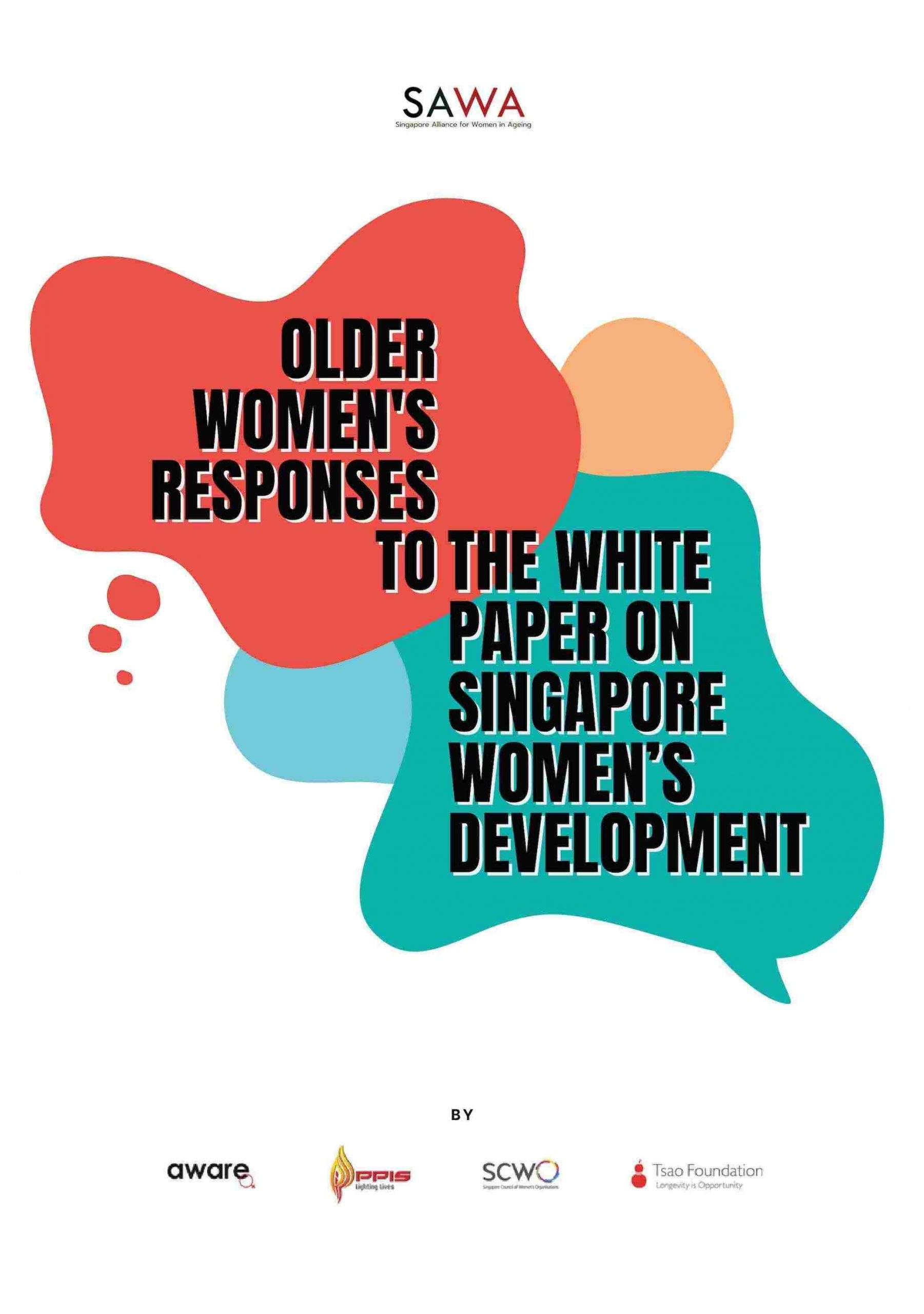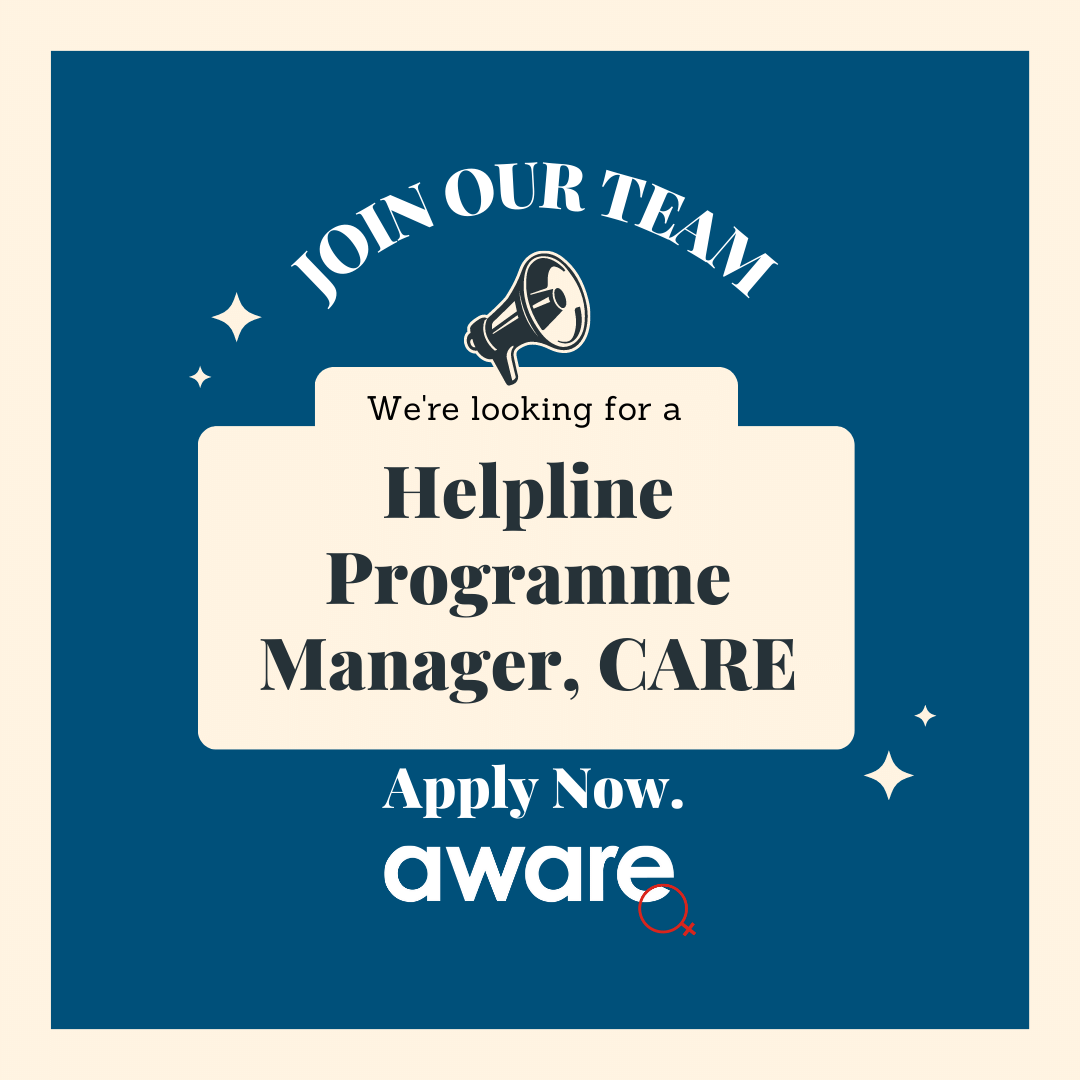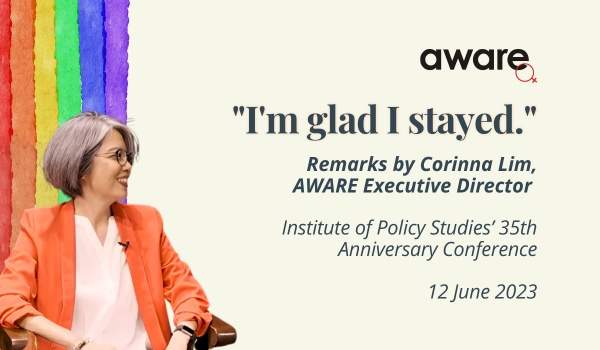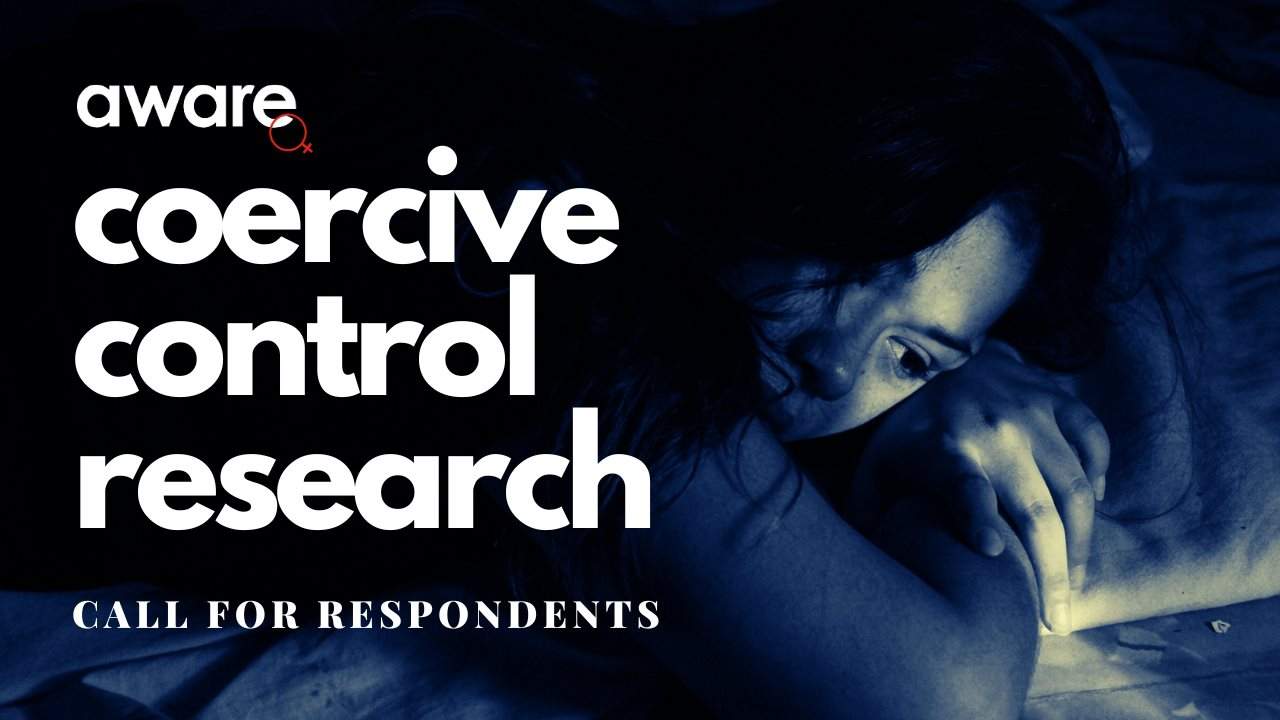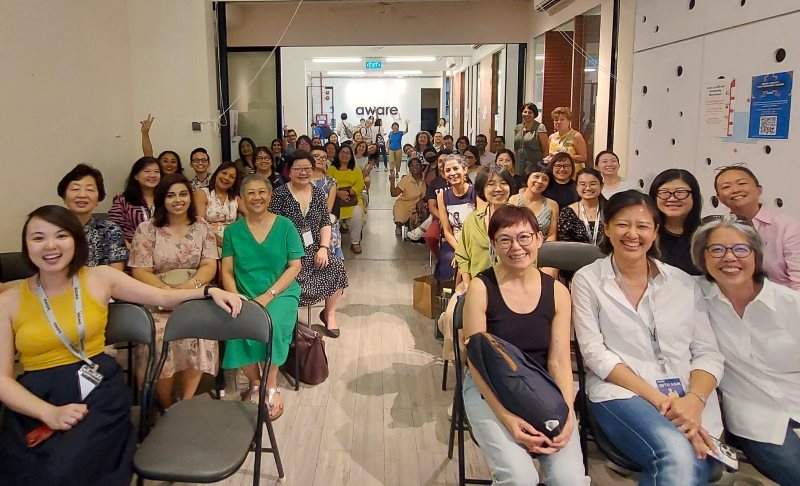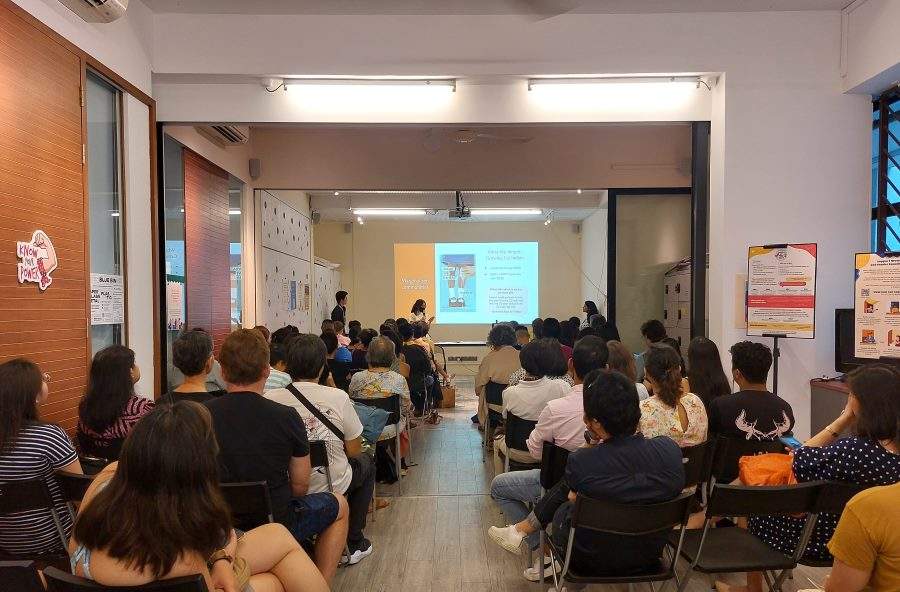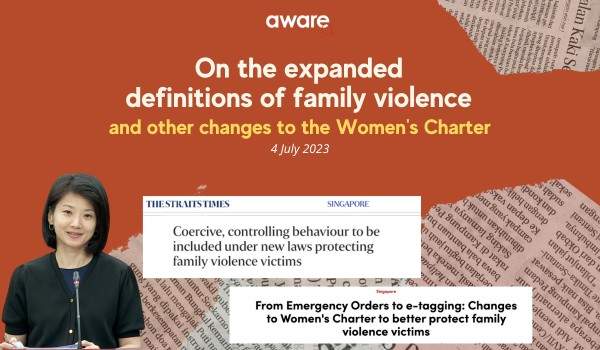
AWARE celebrates the passing of the Women’s Charter (Family Violence and Other Matters) (Amendment) Bill on 4 July 2023 in Parliament.
We were especially heartened to hear Minister of State Sun Xueling state that controlling behaviours, such as those seen in coercive control, will now be covered under the Women’s Charter. For far too long, violence has been misunderstood as primarily physical in nature, resulting in many victim-survivors of non-physical violence going unheard. This wider definition of family violence will empower more survivors to speak out and seek help.
We hope that a set of guidelines or a fact sheet can be published to complement these updates and clearly state what different types of abuse comprise, i.e. physical, emotional/psychological and sexual abuse. This will help practitioners in the justice system and support services as well as the general public.
With understanding of coercive control increasing of late, AWARE has been exploring ways to expand the scope of case management and befriending services to survivors of coercive control, beyond our current helpline, counselling and legal clinic. We plan to roll these changes out soon, while continuing our ongoing research, advocacy and public education efforts.
Other Observations
- In her speech, MOS Sun also stated that MSF would, alongside partners and stakeholders, study the possibility of including financial abuse in the definition of family violence. We keenly await more developments in this area, and hope financial abuse can be covered to ensure comprehensive protection against all forms of family violence.
- MP Louis Chua sought clarification on the need for an age limit to apply for Personal Protection Orders (PPOs), citing concern about youths under 18 who face family violence but are unable to rely on family members or other persons to apply for PPOs. Though MOS Sun explained that protectors will be able to apply for PPOs on behalf of minors, we worry that other barriers might prevent minors from accessing protectors’ assistance and obtaining PPOs. We therefore hope that MSF will consider providing additional kinds of support to this group.
- MP Louis Chua also reiterated the importance of raising public awareness about family violence and encouraging bystander intervention. He proposed more holistic support for survivors via access to housing, timely employment, immigration support, mental health and psychological support. We echo this call for greater support, particularly for migrant spouses and children, who typically face more precarity in Singapore.
- MP Louis Ng raised concerns over the electronic monitoring arrangements (including bilateral monitoring, i.e. of both perpetrator and survivor) that will be put in place if there is a risk of PPOs being breached. Having expressed similar concerns when the bill was first tabled, we urge MSF to take into consideration the impact on survivors when implementing electronic monitoring.
- We are glad to hear that MSF is considering the possibility of enacting a standalone Domestic Violence Act to enhance protection for persons in intimate, non-familial relationships. We look forward to more details on this.




